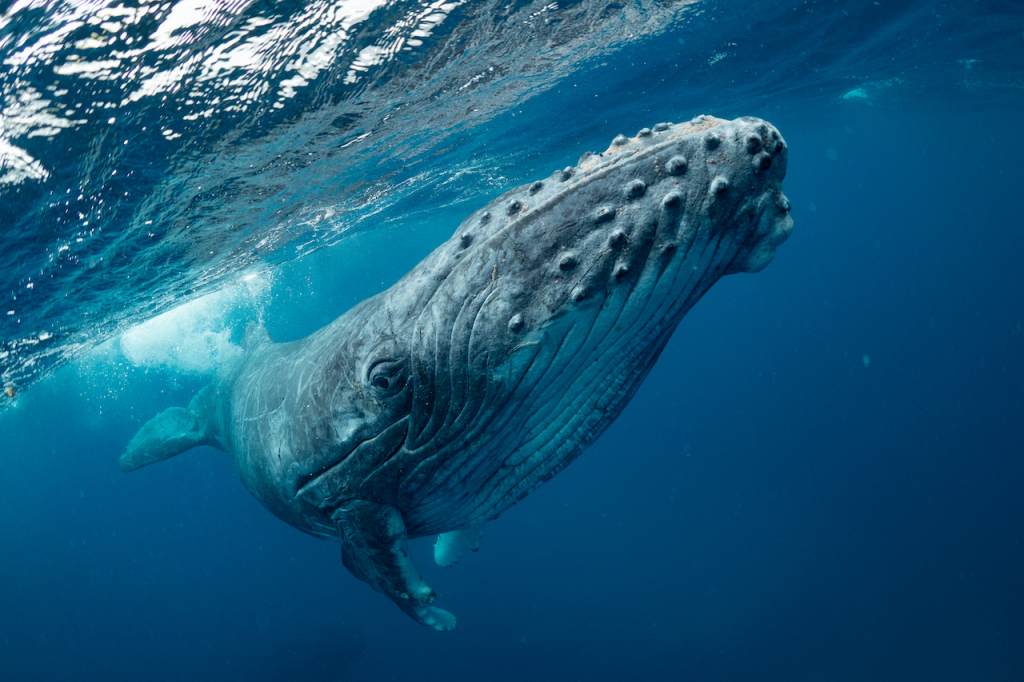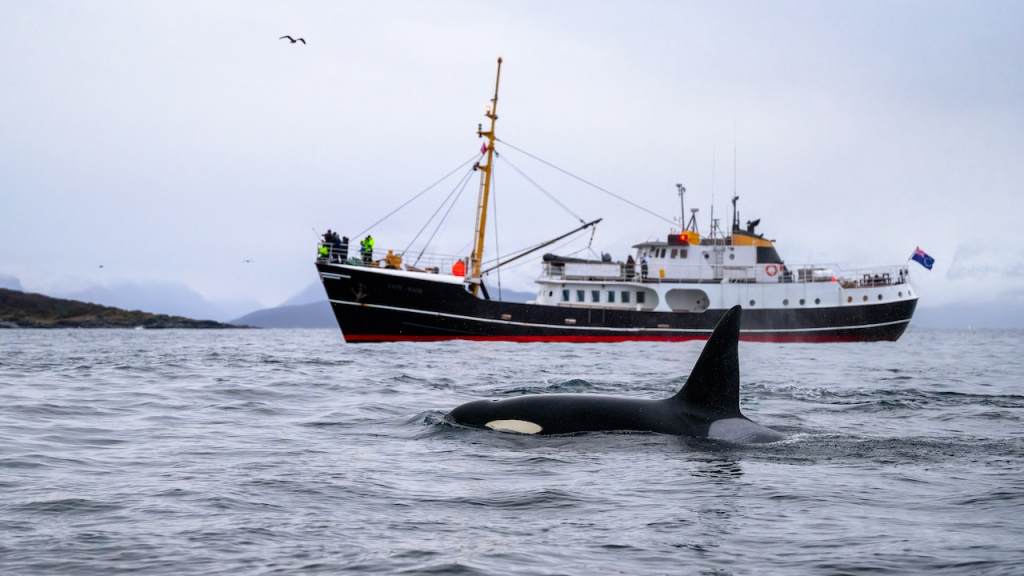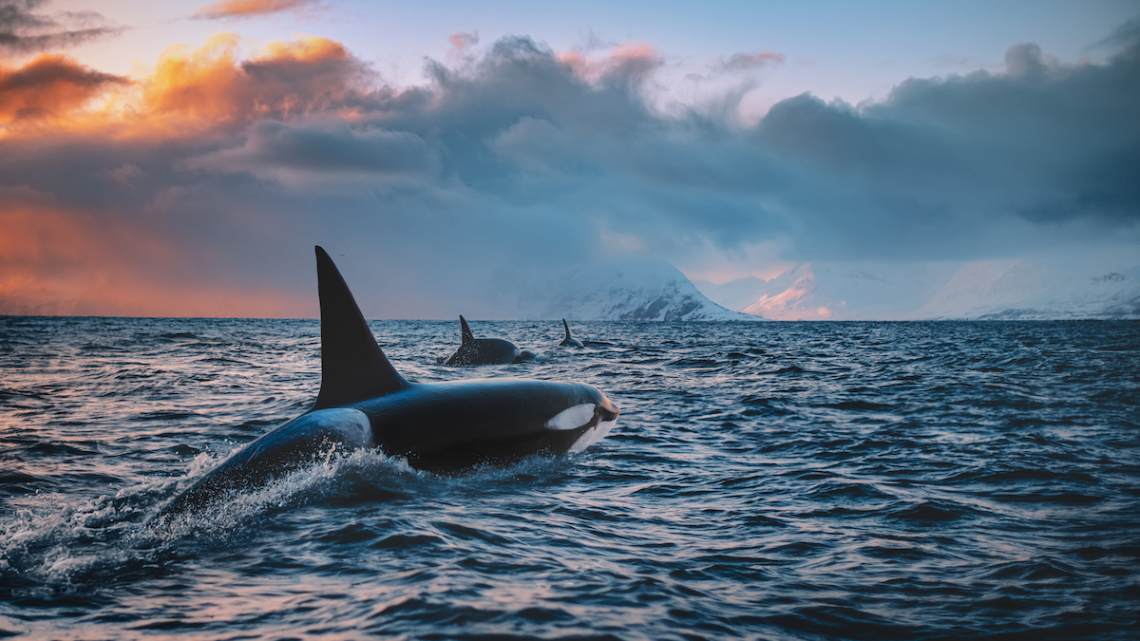In recent years, orcas have taken center stage in the news with unprecedented behaviors. Scientists and sailors alike have observed them in the middle of fascinating (and previously unrecorded) activities. Like favoring choice cuts of meat, ramming into boats, and hunting some of the world’s largest animals. Does this mean orcas are getting smarter? We’ll let you be the judge.
Here’s everything you need to know about recent orca innovations and why some people think they’ve upped their IQs.
Never Before Seen Behaviors
If ever there was an apex predator ripe for doing things differently, it’s the orca. After all, they’ve got massive brains, and they know how to use them. All told, an orca’s brain can measure upwards of 15 pounds!
Deborah Giles of the University of Washington explains, “These are animals with an incredibly complex and highly evolved brain. They’ve got parts of their brain that are associated with memory and emotion that are significantly more developed than even in the human brain.”
All that gray matter makes orcas fast learners. One of their favorite ways to learn? By mimicking the oldest and wisest members of their pod. Scientists refer to this practice as social learning, and it may explain some of the strange tricks orcas have displayed in recent years.
Attacks on the World’s Largest Mammal
In March 2019, scientists witnessed something unheard of — a pod of killer whales hunting and eating a blue whale. As the largest mammal in the world, blue whales come in at about four to five times as big as your average orca!
Of course, this isn’t a fair comparison. Despite their popular moniker, killer whales aren’t whales at all. Instead, they comprise the largest species in the dolphin family. And they’ve got the brains, social skills, and underwater abilities to prove it. Move over, Flipper!

Blue whale.
Getting back to the subject of blue whale hunting, this newly witnessed behavior points to orcas’ high IQ. According to Robert Pitman of Oregon State University, landing the world’s largest mammal “requires cooperation and coordination.”
Although the orcas would have had meat for days after taking down the blue whale, they also demonstrated another surprising behavior. Instead of devouring as much of the carcass as possible, they focused on choice pieces of meat. In the case of the blue whale, this meant the tongue.
Preferred Cuts of Meat and Dietary Adjustments
Ready for another jaw-dropping behavior that researchers have witnessed with orcas in recent years? Great white shark hunting! It all started off the coast of South Africa when great white sharks began washing ashore with no livers. Eventually, two orca culprits — Starboard and Port — hit newspaper headlines.
At first, scientists considered the shark-liver eating an isolated case. But then another group of orcas off the coast of Baja, Mexico, took down a whale shark. Again, they focused solely on devouring its liver.
What’s the takeaway from all of this? Orcas appear to be picky eaters. “Killer whales are like humans in that they have their ‘preferred cuts of meat,’” explains Pitman.
When the black-and-white dolphins don’t get their first choice of food, they’ve also proven more than readily capable of adapting. In the southern Indian Ocean, a couple of orca populations have taught themselves how to scavenge human-caught toothfish from longlines.
No matter what orcas prefer on their dinner plate, one thing’s certain: They pass the most successful of their predation skills on to future generations. In this way, they ensure productive hunts for their children and grandchildren.
Other Curious Learned Behaviors
Social learning also appears to be the motivation behind orcas in the Mediterranean who’ve started interacting with boats in a way never seen before. A pod has taken up actively ramming and even attempting to sink vessels.
Moreover, sailors have observed mothers showing their calves how to do the same! What got this boat-attacking habit going? No one knows for sure. But scientists speculate it may have started with an orca traumatized by an accidental run-in with a ship.

Besides charging boats, scientists have witnessed an orca pod that briefly started wearing the salmon they caught as hats! And other instances where pods have played lethal games with baby porpoises. Some researchers speculate these games teach orca young how to fish for salmon, which are about the same size as the infant dolphins.
Bigger Brains or Better Memory?
Not all scientists remain convinced that the antics recently observed in orcas are first-time events. For starters, there have never been more ships on the water or cameras positioned for surveillance. It only stands to reason that more orca behavior would get revealed over time.
Other researchers also point to historical data suggesting feats like whale hunting among orcas is nothing new. For example, orcas once hunted alongside indigenous and white whalers off coastal Australia.
According to accounts from both whaling communities, the orcas would slap the water, alerting whalers of the presence of their prey. In some cases, they would tow the whalers via a rope closer to the object of the harpoons, and they would even pull on the harpoon line to tire whales more rapidly.
In return, sailors enacted the “Law of the Tongue.” This “law” ensured cooperative orcas received the lips and tongue of any whales they helped hunt. Such mutualistic interactions point yet again to the incredible intelligence of orcas, both past and present.
Dive Into More Ocean Discoveries
Interested in learning more about the ocean and all the curious creatures that inhabit the deep blue? Swim over to one of our three amazing Ripley’s Aquarium locations to get up close and personal with incredible creatures of the sea!
By Engrid Barnett, contributor for Ripleys.com









